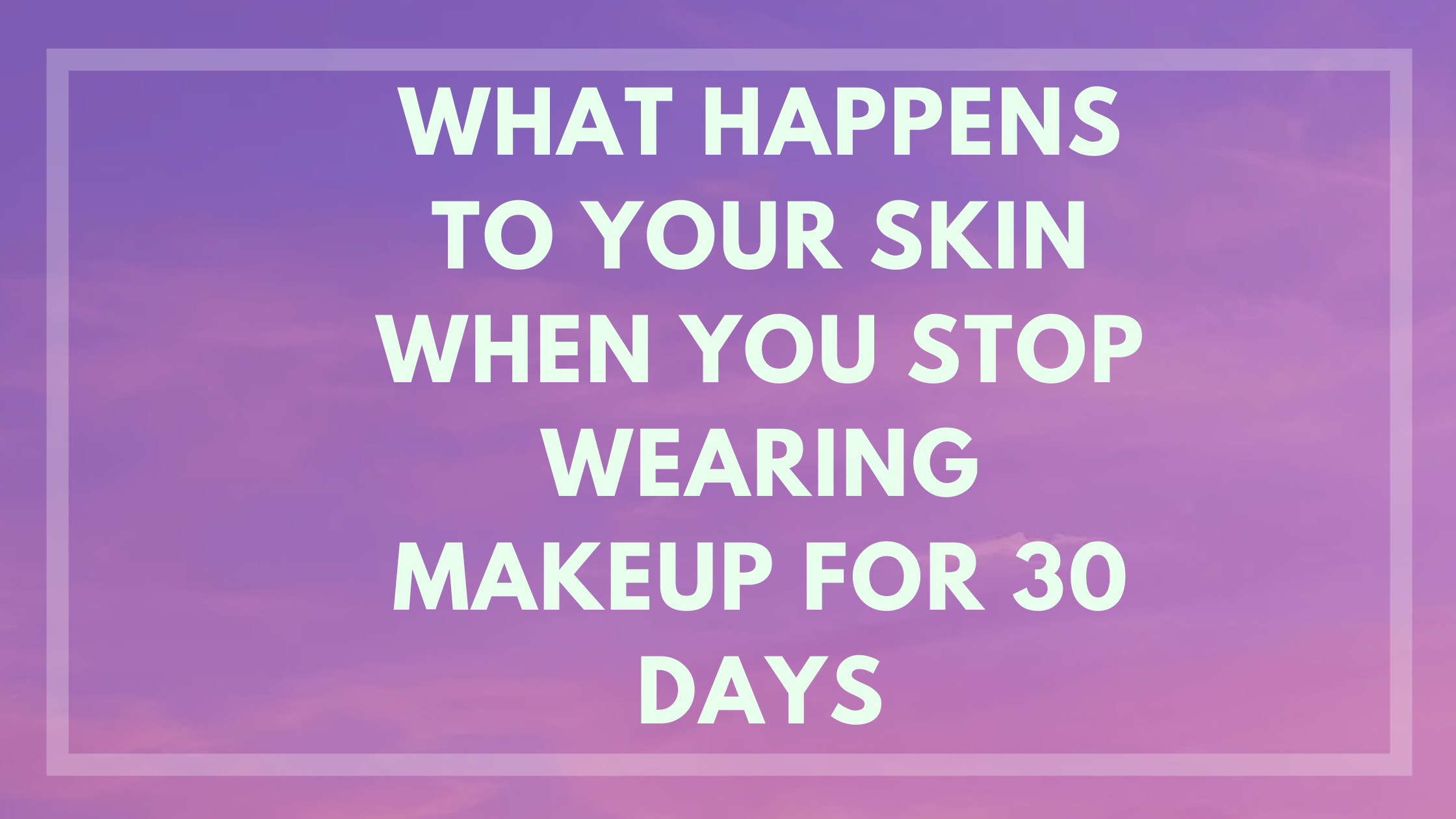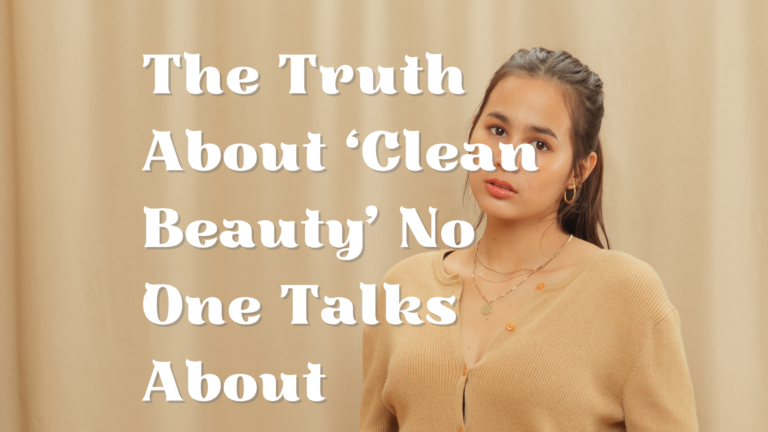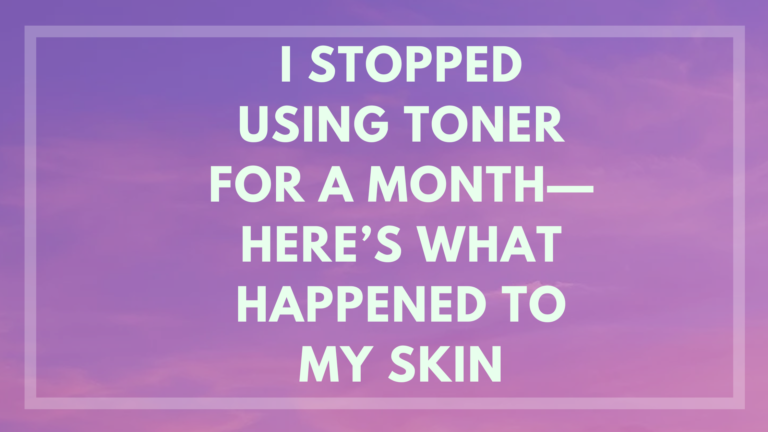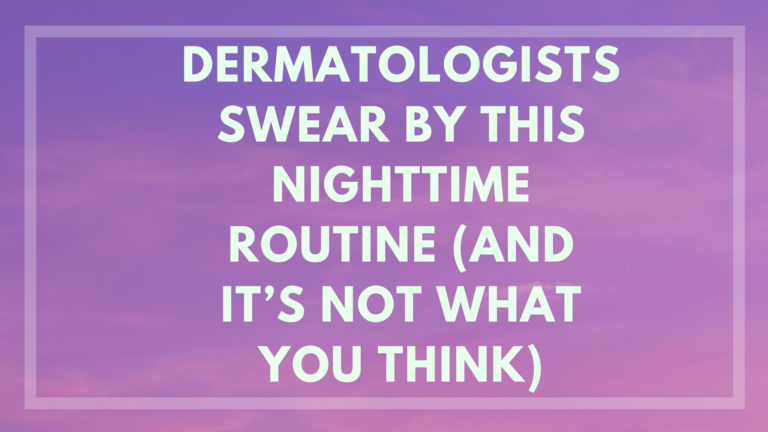Makeup has been part of my daily routine for years. A little foundation to even out my skin tone, concealer to cover up dark circles, and mascara to look more awake. It never felt like too much—just enough to feel put-together. But after a long stretch of feeling tired, breaking out more often, and spending too much time in front of the mirror, I decided to take a full break.
Thirty days without foundation, concealer, blush, or anything else that counts as coverage. Just clean skin, moisturizer, and sunscreen. I wanted to see what would really happen—not just to my skin, but to how I felt without the daily layer.Here’s everything I noticed during the 30 days without makeup—and what I learned in the process.
Week 1: My Skin Felt Exposed and a Little Uneasy The first few days felt strange. I’d catch a glimpse of my face in the mirror and instinctively reach for concealer that wasn’t there. I noticed every blemish, every uneven patch, and every shadow under my eyes.But physically, my skin felt a little more comfortable. No end-of-day dryness or tightness. No need to double-cleanse. Just a gentle wash and moisturizer.By the end of the week, I was already starting to feel less dependent on makeup to feel awake or confident.
Week 2: Fewer Breakouts, More Balance This was when I started noticing real changes in my skin. Breakouts around my cheeks and jawline had started to calm down. My T-zone felt less oily throughout the day, and the texture on my forehead seemed smoother.Not wearing makeup meant I wasn’t constantly applying and removing product, which gave my skin more time to breathe and repair itself naturally. I also found myself touching my face less during the day, which may have helped reduce breakouts too.
Week 3: My Skin Tone Looked More Even As the days passed, I noticed I wasn’t thinking about my skin as much. The redness that usually peeked through under my foundation was fading, and my overall skin tone seemed more even without me doing anything extra.I was also becoming more aware of my skincare routine. Since I wasn’t using makeup to “fix” anything, I paid closer attention to how my products were working. I focused more on hydration, barrier support, and sun protection.
Week 4: Confidence Beyond the Mirror By the end of the 30 days, the biggest change wasn’t just my skin—it was how I felt about it. I started appreciating the natural texture, the little freckles, even the faint shadows. My skin wasn’t flawless, but it looked and felt healthier.The best part? I no longer felt like I had to hide behind makeup. When I did choose to wear it again, it was a choice—not a need.
What I Learned From 30 Days Without Make up 1. Your skin can reset itself when given space.Daily makeup can clog pores and disrupt the skin barrier over time. Removing it from the equation gave my skin a chance to heal.2. You might not need as many products as you think.Once I stopped wearing makeup, I simplified my routine and focused on hydration, gentle cleansing, and sun protection. That alone made a big difference.3. Confidence grows when you let go of expectations.Going bare-faced forced me to shift the way I see myself. I became less focused on covering flaws and more focused on caring for my skin.4. You don’t have to quit makeup forever.Makeup isn’t the enemy. But stepping away for a while helped me reconnect with what my skin actually needs—and how I want to feel in it.
Final Thoughts Going makeup-free for 30 days was more than a skincare experiment. It was a mindset shift. It taught me that skin doesn’t have to be perfect to be beautiful. That rest, care, and consistency often do more for your face than layers of foundation ever could.If you’ve been thinking about taking a break from makeup, even just for a week, consider it a chance to reset—not just your skin, but your relationship with it. Because sometimes, the glow you’re looking for isn’t in a bottle. It’s in how you treat yourself when no one else is watching.




